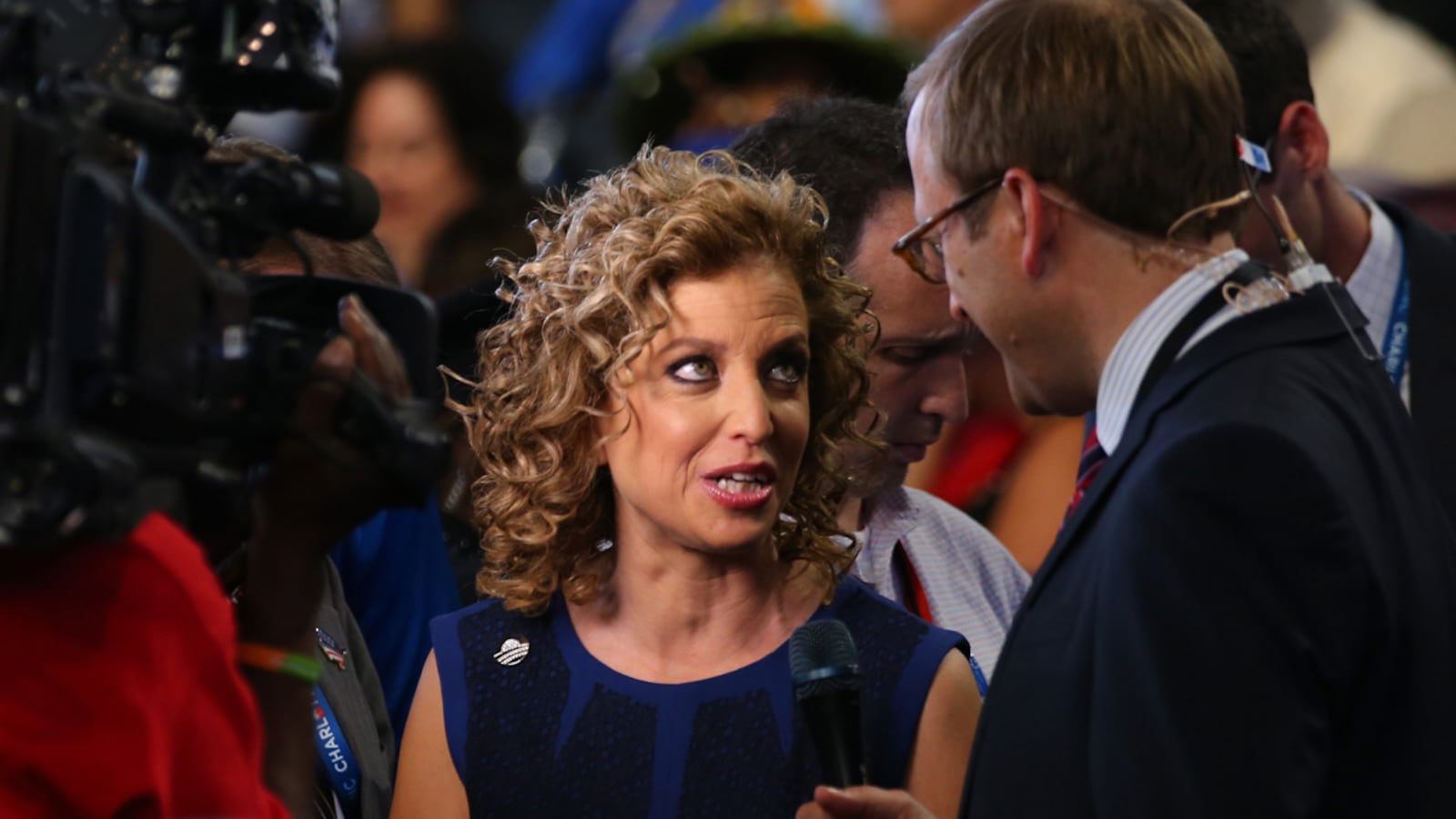It was one of those rare unscripted moments where viewers could observe on live television differences among the delegates in Charlotte, N.C., on how to handle God and Israel in the Democratic Party platform. With Los Angeles Mayor Antonio Villaraigosa presiding, the delegates, 6,000 strong, shouted out their ayes and nays three separate times before Villaraigosa, the convention chairman, pronounced victory for the ayes, claiming they had provided the required two-thirds voice vote even though to most ears, the delegates sounded pretty evenly divided.

Democrats did their best to smooth over the differences, but they did it in such a ham-handed way that it brings to mind the fabled Groucho Marx quote, “Are you going to believe me or your lying eyes?”
Democratic National Committee chair Debbie Wasserman Schultz was the biggest offender, insisting on CNN Thursday morning that the removal of language declaring Jerusalem the capital of Israel was a “technical omission,” and that President Obama’s personal intervention to reinstate the language was only an attempt to gain “more clarity” in a platform that was already very strong on Israel.
News hosts and guests in Charlotte were incredulous as Wasserman Schultz made her case. The party chair’s credibility was already suffering because of remarks she made to a reporter about Republican policies hurting Israel, adding, “I’ve heard no less than Ambassador Michael Oren say this, that what the Republicans are doing is dangerous for Israel.” The Israeli ambassador disavowed the remark, and Wasserman Schultz said she’d been misquoted, adding it was no wonder since the reporter worked for a conservative newspaper, the Washington-based Examiner.
The reporter then made public the audio of his interview with Wasserman Schultz, revealing that he was accurate, and she was wrong. The Washington Post awarded her four Pinocchios.
Internal wrangling about a party platform is nothing new, but what is surprising is that the Democrats hadn’t resolved things long before they got to the convention floor in Charlotte. Taking God out of the phrase “God-given talents,” was a stupid thing, says Dotty Lynch, a political consultant with CBS News and an executive in residence at American University’s School of Communication, “but Jerusalem is a fight.”
It’s not a new fight. Lynch recalls working on Gary Hart’s campaign in 1984 when he was challenging Vice President Mondale for the Democratic nomination. “We were engaged in strife over this then,” she says. “This goes way back—it’s been an issue forever.” The debate then in the New York primary was over which of the two candidates was more in favor of moving the U.S. embassy from Tel Aviv to Jerusalem. Mondale accused Hart of flip-flopping on Israel because Hart had once advocated the move only as part of a larger effort to negotiate peace. “It’s an evergreen,” says Lynch.
It’s hard to believe Democrats were unaware of the sensitivity around the issue of Israel, especially in this campaign season when Obama’s solidarity with the Jewish state is coming under attack from Republicans. “Let’s not make more of this than it is,” Wasserman Schultz pleaded as CNN host Soledad O’Brien peppered her with questions about the process, and how it had gotten so out of hand. “Debbie is not an inside player,” says Lynch. “She goes out and does the talking points.”
Four years ago Democrats inserted the language about Jerusalem as an olive branch to the Jewish community. Obama can ill afford to remove it in the current political climate, and so it’s not surprising that he stepped in to make sure the original language was restored.
What is surprising is the fact that the dispute wasn’t resolved earlier, and that it didn’t come to light until the delegates were assembled in Charlotte. “Typically that’s ironed out weeks ago when drafts of the platform get circulated and all the interest groups get a look,” says Lynch. “Typically there’s a negotiation that doesn’t flare up after the fact.”
With potential disagreements over gay marriage and abortion defused well in advance, Lynch guesses that the pro-Jerusalem groups must not have been paying attention.
Representatives from the State Department stressed as the controversy roiled the convention that it doesn’t bode any change for U.S. policy, that the commitment to Jerusalem as Israel’s capital is “aspirational” on the part of President Obama and not official U.S. government policy. For all the declarations in Charlotte, whoever is elected in November, these officials said, U.S. policy will not change.






